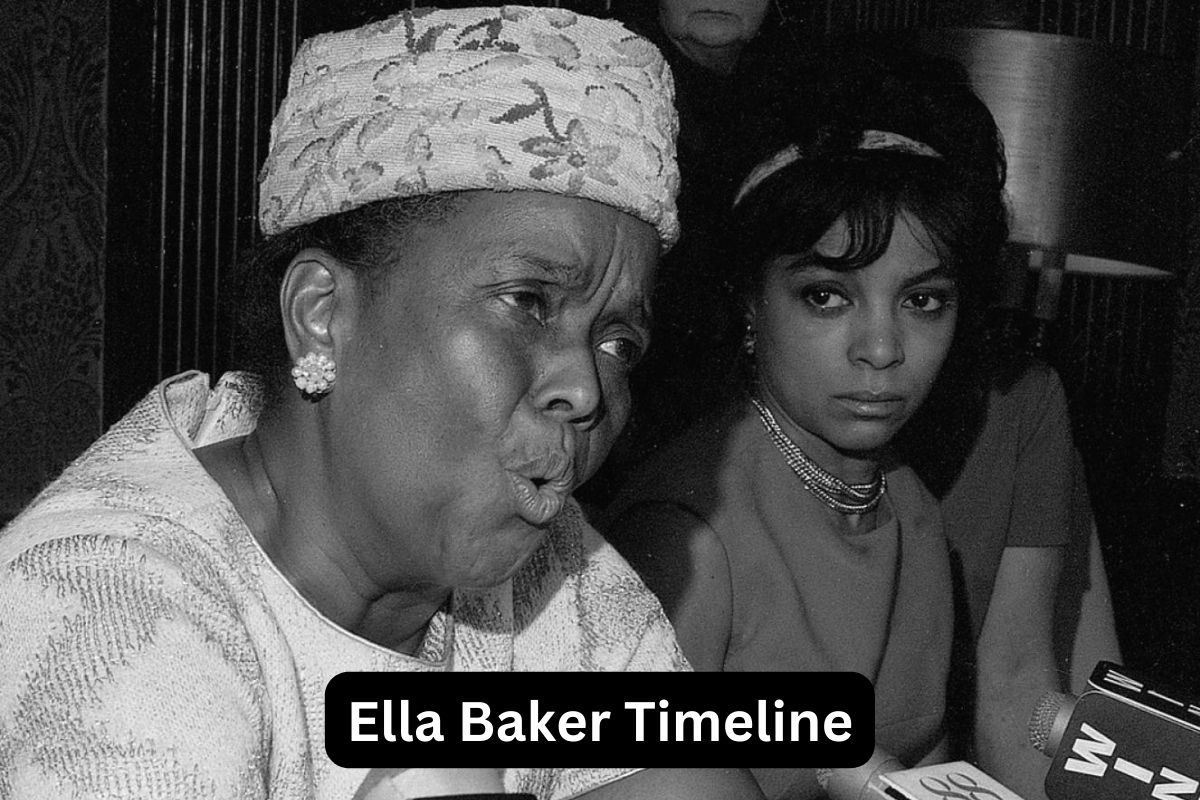Ella Baker (1903-1986) was a prominent civil rights activist and leader who played a crucial role in the American Civil Rights Movement. Born in Norfolk, Virginia, Baker dedicated her life to fighting for equality and social justice.
She was a skilled organizer, mentor, and advocate for grassroots activism. Throughout her career, Baker worked with influential organizations such as the NAACP, the SCLC, and the SNCC, leaving a lasting impact on the movement.
Her commitment to empowering local communities and fostering collective action continues to inspire activists and organizers today.
Timeline of Ella Baker
1903 – Ella Baker is born in Norfolk, Virginia
Ella Baker is born in Norfolk, Virginia. She grows up in a racially segregated society, witnessing the injustices and inequalities faced by African Americans.
1927 – Graduates from Shaw University
After completing her studies at Shaw University, a historically Black college in Raleigh, North Carolina, Baker graduates as class valedictorian.
Her academic achievements reflect her intelligence and dedication.
1930s – Moves to New York City and becomes involved in social justice organizations
Baker moves to New York City, where she becomes actively involved in various social justice organizations.
Also Read: Ella Baker Accomplishments
She joins the Young Negroes Cooperative League, which aimed to improve economic opportunities for African Americans.
She also becomes a member of the Harlem’s Consumer League, fighting against exploitative practices in local businesses.
1940s – Works as a field secretary for the NAACP
Baker begins working as a field secretary for the National Association for the Advancement of Colored People (NAACP).
Also Read: Ella Baker Facts
In this role, she travels extensively, organizing local branches and advocating for voting rights and equal education.
She helps establish youth chapters of the NAACP and encourages young activists to participate in civil rights activities.
1957 – Becomes the first executive director of the SCLC
Baker moves to Atlanta, Georgia, to work closely with Dr. Martin Luther King Jr. and assist in the organization of the Southern Christian Leadership Conference (SCLC).
She becomes the SCLC’s first executive director, contributing her organizational skills and strategic planning to the emerging civil rights movement.
During her time with the SCLC, she helps coordinate initiatives such as the Montgomery Bus Boycott and plays a vital role in promoting nonviolent resistance and mobilizing communities for change.
1960 – Helps establish the SNCC
Ella Baker plays a pivotal role in the establishment of the Student Nonviolent Coordinating Committee (SNCC) during a meeting at Shaw University.
She emphasizes the importance of empowering young activists and encourages them to take leadership roles within the movement. Baker becomes a mentor and advisor to many SNCC members, fostering their growth and development as grassroots organizers.
1961 – Organizes the “Save the Children” campaign
Baker organizes the “Save the Children” campaign, which raises funds to support the families of civil rights activists who were imprisoned or facing financial hardships.
The campaign brings attention to the personal and financial sacrifices made by those involved in the struggle for justice and equality.
1964 – Steps down from the SNCC
After serving as the executive director of the SNCC for several years, Baker steps down from her position. However, she remains actively involved in civil rights activism, continuing to provide guidance and support to young activists.
She advocates for participatory democracy and urges individuals to challenge systemic oppression through collective action.
Late 1960s – Shifts focus to grassroots community organizing
Baker shifts her focus towards grassroots community organizing. She works with organizations such as the Mississippi Freedom Democratic Party, which sought to challenge racial discrimination in the political sphere, particularly during the 1964 Democratic National Convention.
Baker also becomes involved with the Southern Conference Education Fund, an organization dedicated to promoting racial justice and grassroots empowerment in the South.
During this period, Ella Baker’s work expanded beyond organizational roles to focus on nurturing and empowering emerging leaders, advocating for broader political participation, and fostering community-driven initiatives.
Her influence and impact on the civil rights movement and grassroots activism remain profound.
1986 – Ella Baker passes away on December 13 in New York City, on her 83rd birthday
Ella Baker passes away on December 13 in New York City, on her 83rd birthday. Her lifelong commitment to social justice and her tireless efforts to empower marginalized communities leave a lasting legacy.
Her emphasis on bottom-up organizing, community empowerment, and inclusive decision-making continues to inspire activists and organizers around the world.
